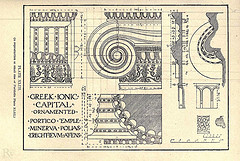It may take a lifetime to research and learn about classical music. However, understanding a few basic points can enhance your knowledge of this musical genre.
Firstly, it is essential to have a clear understanding of what classical music is. In strict terms, classical music is defined by a specific time period rather than a style. The classical music era is generally considered to be between 1750 and 1820, preceded by the Baroque period and followed by the Romantic era.
The term “classical music” is often used loosely to describe any music composed before 1900. Some people also believe that it encompasses any piece of music specifically created for an orchestra. A piece of music that does not fit into categories like pop, jazz, or rock and involves the use of violins, flutes, and horns is considered classical.
To understand classical music, it is important to recognize that the orchestra itself has evolved over time. The orchestra we see today differs from the one in the classical era. In the 1700s, the orchestra was much smaller and featured fewer types of instruments.
A prime example of this is the percussion section. In a modern orchestra, there can be over 15 different instruments in this single section, ranging from chimes to xylophones. In contrast, classical-era orchestras only had timpani drums. Not only were there fewer instruments in classical orchestras, but there were also fewer musicians. A modern orchestra may have as many as sixteen violinists, while a classical-era orchestra might only have six during a major production.
Music performed and composed during this period played a significant role in people’s lives. With few other forms of entertainment, music became a cultural focal point. People would regularly attend productions and concerts. The nobility often had in-house musicians. Composers were part of the household staff, just like a maid or butler. These musicians were expected not only to play but also to write new pieces to entertain the nobility and their guests.
As an in-house musician, a composer would be required to produce works at an incredible pace to ensure that their patron and guests did not grow bored. This position meant that many pieces a composer wrote would not only be for an orchestra or a single musician but also for chamber music.
Chamber music is defined as a piece of music composed to be performed by a small group of musicians in an intimate setting. The ensemble itself could vary in size and the types of instruments played. The choice of instruments and the number of musicians would be directly related to the individuals available to practice and play with the in-house composer. These other musicians could also be part of the household staff or guests staying at the patron’s residence.
Some of the most well-known musicians of this period include Ludwig van Beethoven and Wolfgang Amadeus Mozart. Others, such as Johann Christian Bach and Joseph Haydn, should not be overlooked. Although his name is less widely known, Christoph Willibald Gluck was a major composer of musical pieces for this period, and his contributions significantly influenced those around him and subsequent musicians.
Manuel Marino is a seasoned Senior Producer, Music Composer, and Artist with over a decade of experience. He specializes in branded entertainment across various mediums, including video games, films, and advertising campaigns. With 20+ years as a game music composer, Manuel has worked on numerous platforms, creating diverse orchestral soundtracks. HIRE ME


 Manuel is a passionate, driven, and techsavvy AV technician,
Manuel is a passionate, driven, and techsavvy AV technician, 

